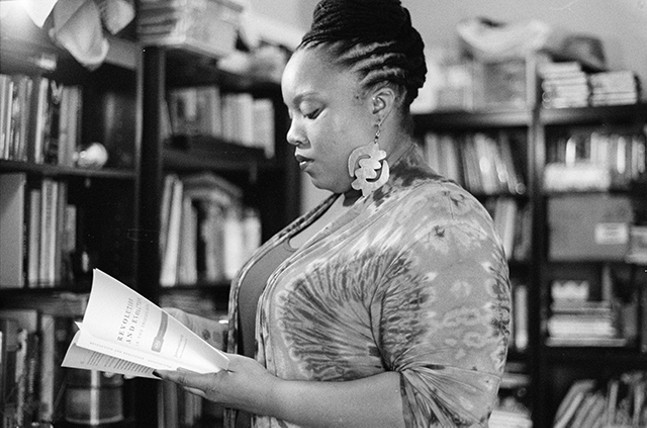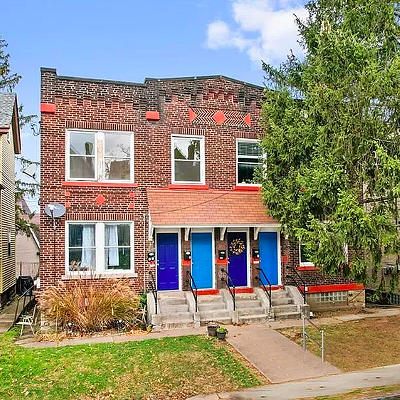“One thing at a time, sister.” A Black male filmmaker said this to me after a screening of his film in the ’90s. I had not appreciated his depiction of women and I told him so as he walked through the crowd, basking in a sea of congratulatory handshakes and high-fives. This mentality has pervaded much of the colonized world for hundreds of years. What we have seen, clearly, is that this strategy does not work.
In a white-supremacist patriarchy, Black women and femmes are in a constant precarious position — neither able to check the white or male box, we are often left to celebrate ourselves, alone. However, within this sisterhood there is a unique sustenance that is magical, a deeper understanding of our value and worth. This recognition that we can see what often no one else can see: the essential benefits of listening, supporting, paying, celebrating, and engaging with Black women and femmes. When it is there, it can lift you up over all of the challenges you face, if it is not, there comes a blow that hurts more than anything this world.
As cis-hetero Black womanist/feminist myself, Black queer women and femmes have been an essential part of my journey to freedom. In every aspect of my life, I have learned from their art, experiences, and community.
I asked my sistah, Bekezela Mguni, to share her thoughts on ways Black women, femmes, and non-binary people can connect and work together to create a path to liberation, I believe our path to freedom is one that all the communities of Pittsburgh and the world can model to create real equity and justice for all.
Bekezela Mguni:
We work together to create a path for liberation by listening to and centering those who have historically been the most marginalized in our communities and by working to understand, and heal our internalized racism, sexism, ableism, heteronormativity, transphobia, and capitalism, so we don’t continue to interact with ourselves and each other in oppressive and violent ways. That means putting down our respectability politics, our internalized shame, our mimicking of white supremacy culture (hoarding power and resources), and the devaluing of Black mothers, Black trans women's lives, and feminized labor.
In a Black Feminist Statement written in 1977 by the Combahee River Collective, our Black Feminist foremothers said that “above all else, our politics initially sprang from the shared belief that Black women are inherently valuable, that our liberation is a necessity not as an adjunct to somebody else's but because of our need as human persons for autonomy. … Our politics evolve from a healthy love for ourselves, our sisters and our community which allows us to continue our struggle and work.”
I believe these words are relevant today, and we can continue to learn from the lives and teachings of radical Black feminists. When Black women (cis, trans, queer, non-conforming) and gender expansive people tell their stories, we are continuously gifted guidance and encouragement to become as free and as self-determined as we can possibly be each day of our lives and understand that our personal freedom is connected to the freedom of the greater collective. That is what I celebrate each day.
That is the legacy I am proud to be a part of, feel connected to and fueled by.















